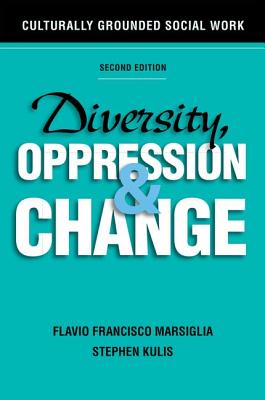
Marsiglia, Flavio Francisco
product information
description
7The fully-updated second edition of Diversity, Oppression, and Change introduces readers to the practice of culturally grounded social work and closely examines the diversity issues most relevant for practice, policy, and research in social work and allied fields. In order for a social worker to affect positive change, it is critical to understand how the intersectionality of social factors-including race, ethnicity, social class, gender, sexual orientation, and ability status-affect not only the client but also the social worker. The authors of this book unpack the complex theory-based concepts related to oppression and privilege so that readers can learn to appropriately address the impact of historically-based oppression for certain groups and communities. Working with these communities to identify oppressive conditions, culturally grounded social workers facilitate real and lasting social change that will result in a more just society.
member goods
No member items were found under this heading.
Return Policy
All sales are final
Shipping
No special shipping considerations available.
Shipping fees determined at checkout.







